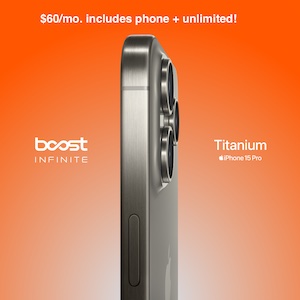PC Outlook Falls As Market Increasingly Looks to Tablets – IDC
Worldwide PC shipments are now expected to fall by -7.8% in 2013 according to the International Data Corporation (IDC) Worldwide Quarterly PC Tracker. The new forecast reflects a shift in PC buying trends as users increasingly consider alternatives such as delaying a PC purchase or using tablets and smartphones for more of their computing needs. In place of a limited decline of -1.3% in 2013 followed by a gradual increase in volume, the new outlook calls for a more substantial decline of -7.8% in 2013 and -1.2% in 2014 with shipment volume reaching only 333 million in 2017 – still below the 349 million shipped in 2012 and a peak of more than 363 million shipped in 2011.
The updated forecast reflects the significant drop in volume during the first quarter of 2013 as well as the transitions happening in PC design as vendors bring products to market that are optimized for Windows 8, including more thin, convertible, touch, and slate models.
“As the market develops, usage patterns and devices are evolving,” saidys Loren Loverde, Program Vice President, Worldwide Quarterly PC Trackers at IDC. “Many users are realizing that everyday computing, such as accessing the Web, connecting to social media, sending emails, as well as using a variety of apps, doesn’t require a lot of computing power or local storage. Instead, they are putting a premium on access from a variety of smaller devices with longer battery life, an instant-on function, and intuitive touch-centric interfaces. These users have not necessarily given up on PCs as a platform for computing when a more robust environment is needed, but this takes a smaller share of computing time, and users are making do with older systems.”
IDC expects to see some replacements happen in 2014, particularly in the commercial segment as support for Windows XP expires. However, the commercial market has been conservative with replacements, focusing on individual systems more than large upgrade projects. In addition, workers at many companies already have portable PCs with adequate configurations. The motivation to buy a new system due to falling prices or to switch from a desktop to a portable PC is contributing less to market growth than it did in the past.
“In addition, the BYOD (Bring Your Own Device) phenomenon has moved from smartphones to tablets and PCs with nearly 25% of employees in organizations larger than 10 people claiming to have purchased the primary PC they use for work,” comments Bob O’Donnell, Program Vice President, Clients and Displays. “This means that some of the corporate PC purchases we expected this year will no longer happen.”

Source: IDC Worldwide Quarter PC Tracker, May 2013
* Forecast data
See Table and Taxonomy Notes below.


Source: IDC Worldwide Quarter PC Tracker, May 2013
* Forecast data
Table Note: Mature Markets includes U.S., Western Europe, Japan, and Canada. Emerging Markets includes Asia/Pacific (excluding Japan), Latin America, Central and Eastern Africa, Middle East and Africa.
Taxonomy Note: PCs include Desktop, Mini Notebook and other Portable PCs, and do not include handhelds or Tablets such as the Apple iPad or Android Tablets.
IDC’s Worldwide Quarterly PC Tracker gathers PC market data in 80 countries by vendor, form factor, brand, processor brand and speed, sales channel and user segment. The research includes historical and forecast trend analysis as well as price band and installed base data.
IDC Tracker products provide accurate and timely market size, vendor share, and forecasts for hundreds of technology markets from more than 100 countries around the globe. Using proprietary tools and research processes, IDC’s Trackers are updated on a semiannual, quarterly, and monthly basis. Tracker results are delivered to clients in user-friendly excel deliverables and on-line query tools. The IDC Tracker Charts app allows users to view data charts from the most recent IDC Tracker products on their iPhone and iPad.
You can learn more about IDC by visiting:
http://www.idc.com
